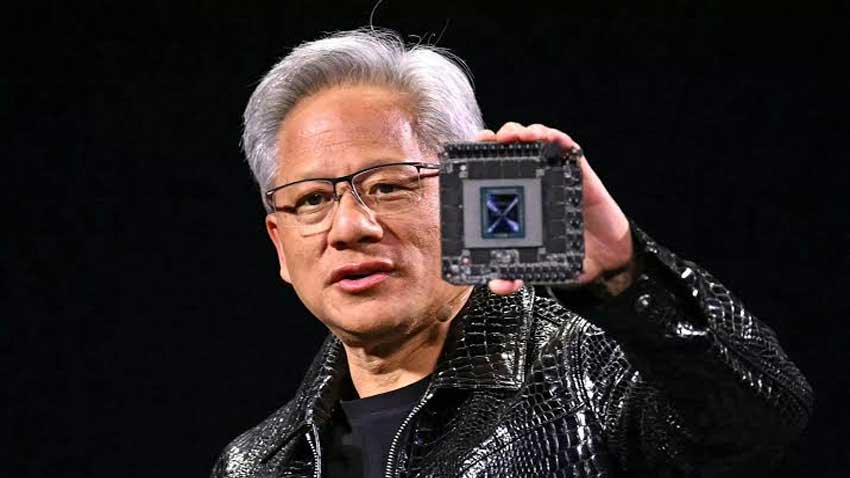
Nvidia s AI chips have been a key focus of U.S. export controls designed to keep the most advanced chips out of Chinese hands over national security concerns. The U.S.-listed company has said the curbs would cut its revenue by $15 billion.
The world s most valuable firm is filing applications with the U.S. government to resume sales to China of the H20 graphics processing unit (GPU), and expects to get the licences soon, Nvidia said in a statement. Shares rose 4.2% in morning trading.
"The U.S. government has assured Nvidia that licences will be granted, and Nvidia hopes to start deliveries soon," said the company, whose chief executive, Jensen Huang, is visiting Beijing and set to speak at an event on Wednesday.
The H20 chips that Nvidia will resume selling are the best it can legally offer in China but lack much of the computing power of the versions for sale outside of China because of previous restrictions put in place by Trump s first administration and then President Joe Biden s administration.
But critically, H20 chips work with Nvidia s software tools, which have become a de facto standard in the global AI industry. Huang has argued that Nvidia s leadership position could slip away if the company cannot sell to Chinese developers, whose open-source technologies such as DeepSeek are gaining traction around the world and who also are being courted by Huawei Technologies Co Ltd with chips produced in China.
Still, big Chinese tech firms still crave Nvidia chips for its computing platform known as CUDA.
Read more: Samsung unveils thinner foldable phones: Is it fearful of Chinese rivals?
The White House, which has previously expressed concern that the Chinese military could use AI chips to develop weapons, did not respond to a request for comment.
Chinese companies have scrambled to place orders for the chips, which Nvidia would then need to send to the U.S. government for approval, the sources familiar with the matter said. They added that internet giants ByteDance and Tencent are in the process of submitting applications.
Central to the process is an approved list put together by Nvidia for Chinese companies to register for potential purchases, one of the sources said.
ByteDance and Tencent did not respond to a request for comment. Nvidia declined to comment on the approved list system.
Nvidia also said it has introduced a new model tailored to meet regulatory rules in the Chinese market.
Huang is set for a media briefing in Beijing on Wednesday when he attends a supply chain expo. The Nvidia CEO also visited China in April and stressed the importance of the Chinese market.
"The Chinese market is massive, dynamic, and highly innovative, and it s also home to many AI researchers," Huang told Chinese state broadcaster CCTV on Tuesday.
"Therefore, it is indeed crucial for American companies to establish roots in the Chinese market."
Asked at a regular foreign ministry briefing in Beijing about Nvidia s plans to resume AI chip sales, a spokesperson said: "China is opposed to the politicisation, instrumentalisation and weaponisation of science, technology and economic and trade issues to maliciously blockade and suppress China."
Huang s visit is being closely watched in both China and the United States, where a bipartisan pair of senators last week sent the CEO a letter asking him to abstain from meeting companies working with military or intelligence bodies.
The senators also asked Huang to refrain from meeting with entities named on the United States restricted export list.
Rival AI chipmaker AMD also said the U.S. Department of Commerce would review its licence applications to export its MI308 chips to China; it plans to resume those shipments when licences are approved, it said. Its shares gained 7% in trading on Tuesday.
EASING TENSIONS
The move to resume sales of the H20 chips comes as China has relaxed controls on rare earth exports and as the United States allows chip design software services to restart in China.
"Despite a pause in H20’s ban, Chinese companies will continue to diversify their options to better protect their supply chain integrity," said He Hui, research director of semiconductors at Omdia.
The H20 chip was developed specifically for the Chinese market after U.S. export curbs imposed on national security grounds in late 2023. The AI chip was Nvidia s most powerful legally available product in China until it was effectively banned by Washington in April, which forced Nvidia to write off $5.5 billion in inventories.
The possibility of new licences could represent about $15 billion to $20 billion in additional revenue this year, depending on when the approval is granted and how quickly deliveries can ramp back up, said Matt Britzman, senior equity analyst at Hargreaves Lansdown. It could also reverse some or all of the first-quarter impairment charge, he said.
China generated $17 billion in revenue for Nvidia in the fiscal year ending January 26, or 13% of total sales, based on its latest annual report.




